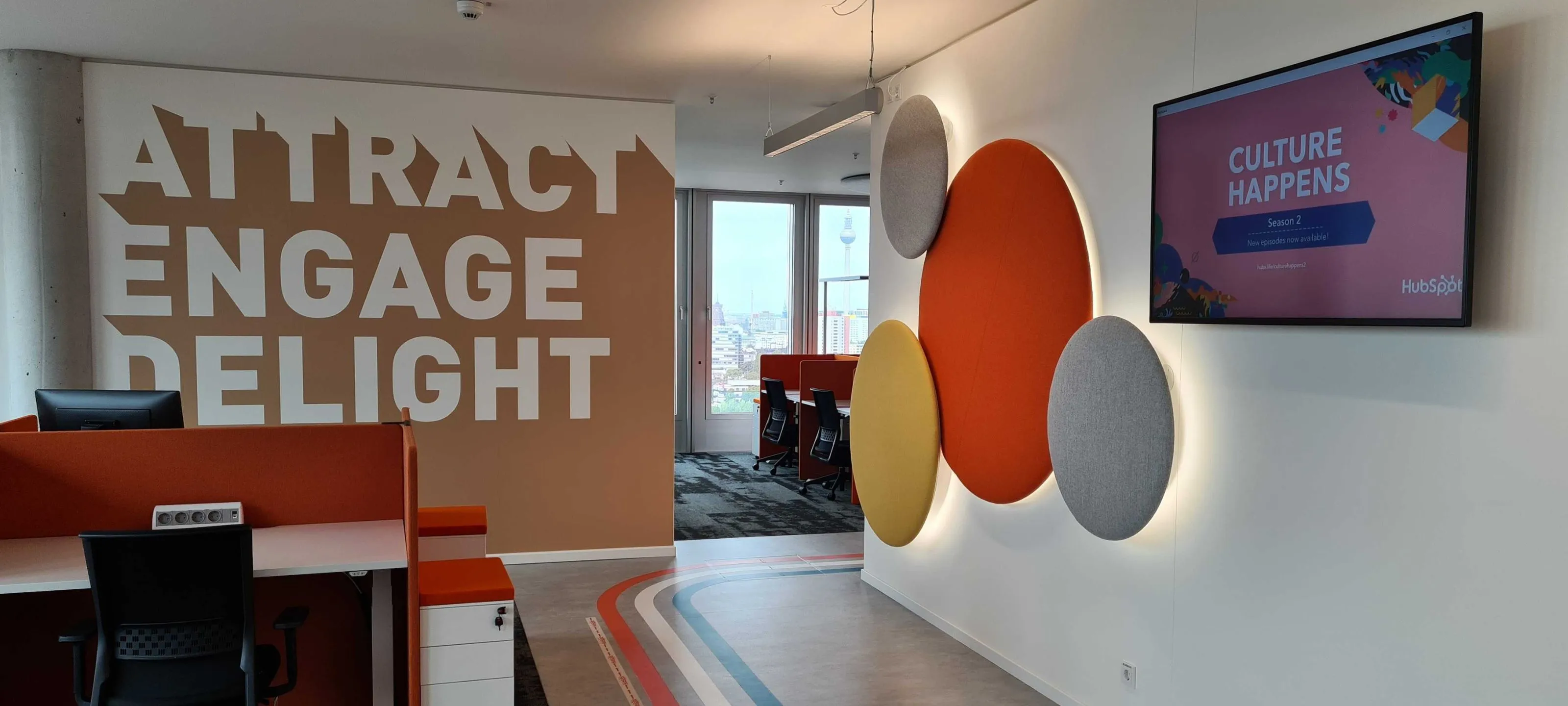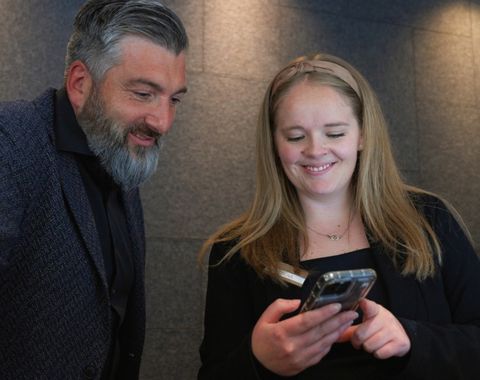.webp)
In Conversation with Kasimir von Koblinski, Principal Customer Success Manager at HubSpot

Kasimir von Koblinski, Principal Customer Success Manager at HubSpot, talks about the importance of marketing automation for the hotel industry. Learn how hotels can work more efficiently and strengthen guest loyalty through targeted strategies.
<div class="article_quote is-img">
<img
src="https://cdn.prod.website-files.com/673f1b4d7fc04861927e7983/67bda34dc06695c62f395c23_800x800px%20-%20Im%20Gespra%CC%88ch%20mit%20Kasimir%20von%20Koblinski%20(2).jpg" loading="lazy" alt=""
class="article_quote_img">
<div class="article_quote_contain is-img">
<div class="article_quote_quote">
"Hotel marketing automation is already on the radar of many hoteliers, but far too few are actually taking advantage of its opportunities.</div>
<div class="article_quote_name u-text-style-main">
Kasimir von Koblinski
</div>
</div>
</div>
As Principal Customer Success Manager - DACH Strategic Accounts at HubSpot, Kasimir von Koblinski is responsible for key accounts. He helps clients achieve their unique marketing and sales goals. Founded in 2006, HubSpot offers a leading CRM platform with software and support to help businesses grow with a system.
All-in-One-CRM
<h3 class="interview-question">What are HubSpot's software solutions in general, and how do they support marketing and sales?</h3>
HubSpot is a CRM platform with products for marketing, sales, customer service, operations, and website management. Among other things, the software helps companies create a customer journey from the initial contact of acquisition and outreach, through interaction with prospects and existing customers who have already purchased.
HubSpot also helps you turn customers into advocates and use the feedback you collect to manage and improve customer service. As an all-in-one solution, HubSpot is suitable for all industries, so companies do not have to rely on different software solutions for different areas (marketing, sales, support, etc.).
With different software systems, data is often lost or corrupted when inquiries or orders are transferred. With HubSpot, people can be assigned directly when they are contacted, eliminating frustration. The marketing process is always the same, whether in tourism, industry or media: from contacting customers, to converting prospects into customers, to providing support and assistance, to referral marketing by HubSpot users.


.webp)

Effective Use of HubSpot in the Hotel Industry
<h3 class="interview-question">Marketing and sales is also a big topic in the hotel industry. How can HubSpot help businesses in the hospitality industry?</h3>
HubSpot started as a marketing software and is now widely used as a sales and service software. Specifically, in HubSpot we offer many different functionalities to engage with (potential) guests. This includes the creation of landing pages, the use of call-to-action buttons, the conversion of existing leads or live chat solutions for your own website. For hotel social media marketing, posts can be scheduled in advance and ranked on multiple channels simultaneously.
In the hotel industry, functions such as hotel SEO, lead generation and social media capture are especially important. With HubSpot, hotels can use automated email marketing where different audiences receive a specific series of emails. Hotels can also reach new audiences, such as B2B event management companies.
<h3 class="interview-question">What is your role at HubSpot?</h3>
At HubSpot, I look after the key account business in the DACH region and help our customers achieve their goals on a strategic level through the various business processes (marketing, sales and services). Together with my clients, I look at what the trends are in the industry and what strategies make sense at the moment, and I often revise the marketing strategy for closer collaboration between the marketing and sales teams.
<div class="article_quote"><div class="article_quote_contain"><div class="article_quote_quote">"In fact, a research found that 63 percent of potential guests search online for reviews before making an online booking. Word-of-mouth and referral marketing is one of the most powerful marketing levers for hotels, and hoteliers in particular should take advantage of this to improve guest retention."</div><div class="article_quote_name u-text-style-main">Kasimir von Koblinski</div></div></div>
I also think with my clients about how we can further improve the customer experience; are existing customers being asked for feedback, at what points in the customer journey are we asking them, and where can we get more feedback to improve our service.
Feedback often raises the question of how to deal with bad reviews, and that it's best to get right back to the people involved. People like to share their experiences and that's why feedback is so popular, especially in the tourism industry.
<h3 class="interview-question">How many employees do you have worldwide?</h3>
As a publicly traded company, we now employ 6400 people worldwide and have customers in over 120 countries.
<div class="article_quote"><div class="article_quote_contain"><div class="article_quote_quote">"The relevance of a CRM is independent of the industry, but especially in the hotel industry it is a very important part."</div><div class="article_quote_name u-text-style-main">Kasimir von Koblinski</div></div></div>
<h3 class="interview-question">Why should a well-maintained CRM (Customer Relationship hubspotManagement) be built for every hotel or hotel chain?</h3>
A CRM is no longer just important for marketing and sales, it is now the heart of any growing business. As a customer system, it allows for secure data storage so that any department can access it to see what has already happened with guests. What are their personal interests or preferences, and what time of year are they booking?
The relevance of a CRM is independent of the industry, but especially in the hotel industry it is a very important part. Among other things, the customer's path becomes visible, i.e. how did they become aware of the hotel, how do they interact with it, what touchpoints have they had, etc.?
Book your Hotel Marketing Consultation:
15-Minute Expert Session - Free & without Obligation
- Exclusive one-on-one video call — free of charge, with no obligations
- In-depth assessment of your current digital marketing setup
- How to leverage guest data to drive direct revenue growth
- Proven strategies to boost occupancy and booking performance
Opportunities, Applications, and Innovations
<h3 class="interview-question">Is marketing automation already important in the hospitality industry?</h3>
According to a survey by Roland Berger, 91 percent of respondents in Austria and 87 percent in Germany consider digitalization in the hotel industry to be relevant. So hotel marketing automation is already on the radar of many hoteliers, but far too few are taking advantage of all its possibilities.
<h3 class="interview-question">What specific use cases do you see for marketing automation for resort, city and chain hotels?</h3>
That's an interesting question! Again, let's start with using HubSpot on the marketing side. In the hotel industry, the priority is how to attract prospects. If you already have social media in place and you see that your target audience is active on Wednesday afternoons, for example, you can use HubSpot to prepare social media posts a month in advance. Contacts see the post, then come to interact, or come to the website and see a blog post on the topic: "Top 10 Things to Do in the Tyrolean Mountains."
HubSpot tracks which customers read which posts. They also have the option to include a call to action button on the landing page to download a checklist for their visit to Tyrol. This added value for potential guests and collected email addresses at the same time. Afterwards, an automated email marketing series can be started with more activities in Tyrol and the offer to find a suitable accommodation in the hotel. Tours and activities can also be offered by the hotel for direct conversion. The data collected is all clear and measurable, so hoteliers can directly see where in the process the booking was made.
<div class="article_quote"><div class="article_quote_contain"><div class="article_quote_quote">"Marketing automation should help attract and retain repeat guests. The software should not be magic, but intuitive and easy to use."</div><div class="article_quote_name u-text-style-main">Kasimir von Koblinski</div></div></div>
After the holiday, feedback can be requested, for example with segmentation - what activities were done and how did they go? This provides immediate feedback that helps them think about what they can do better next time. HubSpot helps hoteliers stay on top of their guests' minds so they can bring them back next year and turn them into regulars. Plus, happy guests are more likely to recommend the hotel to others. Marketing automation should help attract and retain repeat guests. The software should not be magic, but intuitive and easy to use.

<h3 class="interview-question">Are there interfaces with PMS systems? How can data be shared and exchanged?</h3>
Yes, HubSpot has open interfaces that you can connect to your own PMS systems. There is also a large app store with over 1,000 existing integrations that you can use right out of the box.
<h3 class="interview-question">From your perspective, how does the hotel industry compare to other industries?</h3>
Compared to other industries, the hotel industry is still a bit behind. The concept of the customer journey, tracking the process, seeing how people actually come to our site and at what point they decide to book, is not as developed as it is in other industries. However, making these processes visible in the hotel industry is becoming more and more relevant.
<h3 class="interview-question">What exciting projects is HubSpot working on right now?</h3>
We offer an all-in-one solution on the platform and are currently working on three major goals:
- Customization of the software in the form of our own processes, our own data structures. Our focus is on making the system fit the business, not the other way around.
- Creating a more connected system as an all-on-one platform so that all the different departments can use the same system, allowing a clean handover of leads from marketing to sales. Further simplify internal data sharing.
- Provide more customer-centric capabilities to your own clients so they can better interact with their customers. For example, in the U.S., HubSpot has already integrated its own payment system so that its clients can pay or book directly through HubSpot without companies having to integrate an external payment system.
<h3 class="interview-question">Is there someone in the tourism industry (or in any other field) that you have always wanted to meet? Why and what would be your main question to this person?</h3>
I once had an incredibly great experience in Amsterdam at Hotel CitizenM by founder Rattan Chadha, who created a completely new concept for hotels. He wanted to create an innovative, eco-friendly and affordable luxury hotel. The Financial Times called his hotel concept "stylish, high-tech and affordable" and the future of the hotel industry. The rooms were huge and a tablet allowed me to control the temperature, music, lights and rain shower, among other things. The kitchen was open 24/7 with buffet and self-service, and the hotels that have opened so far, in my opinion, show a great vision with a strong focus on being environmentally friendly.
My question to Rattan Chadha would be "How do you drive innovation in turbulent times?" as this is a very interesting question for many companies due to the pandemic to get back on track. After all, difficult times can also bring great opportunities for innovation.
ADDITIVE offers ADDITIVE+ MARKETING AUTOMATION, a marketing automation software specifically designed for the hotel industry. If you are interested or would like more information about marketing automation in hotels, please feel free to schedule a no-obligation online meeting:







.jpg)

.jpg)



.webp)
